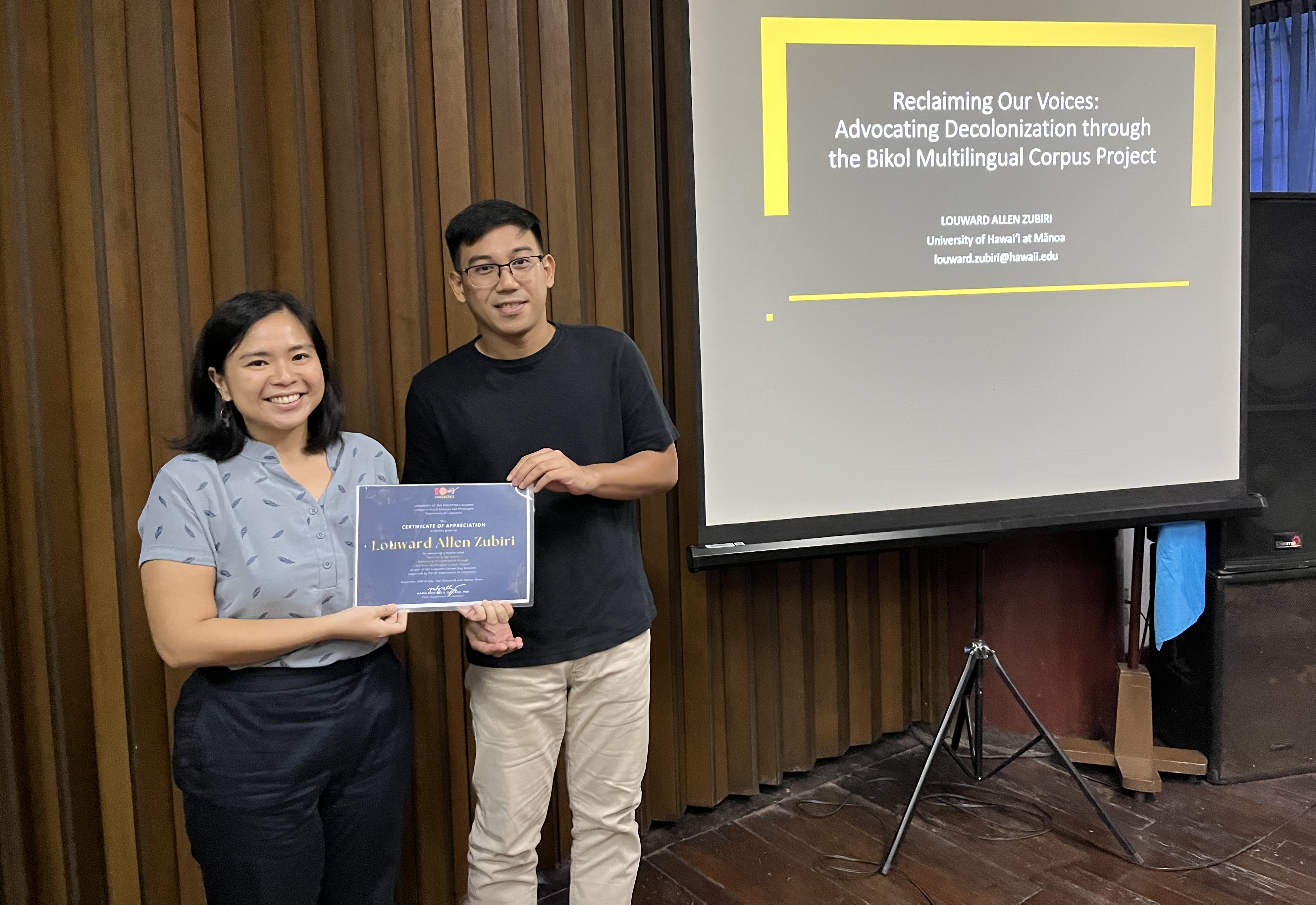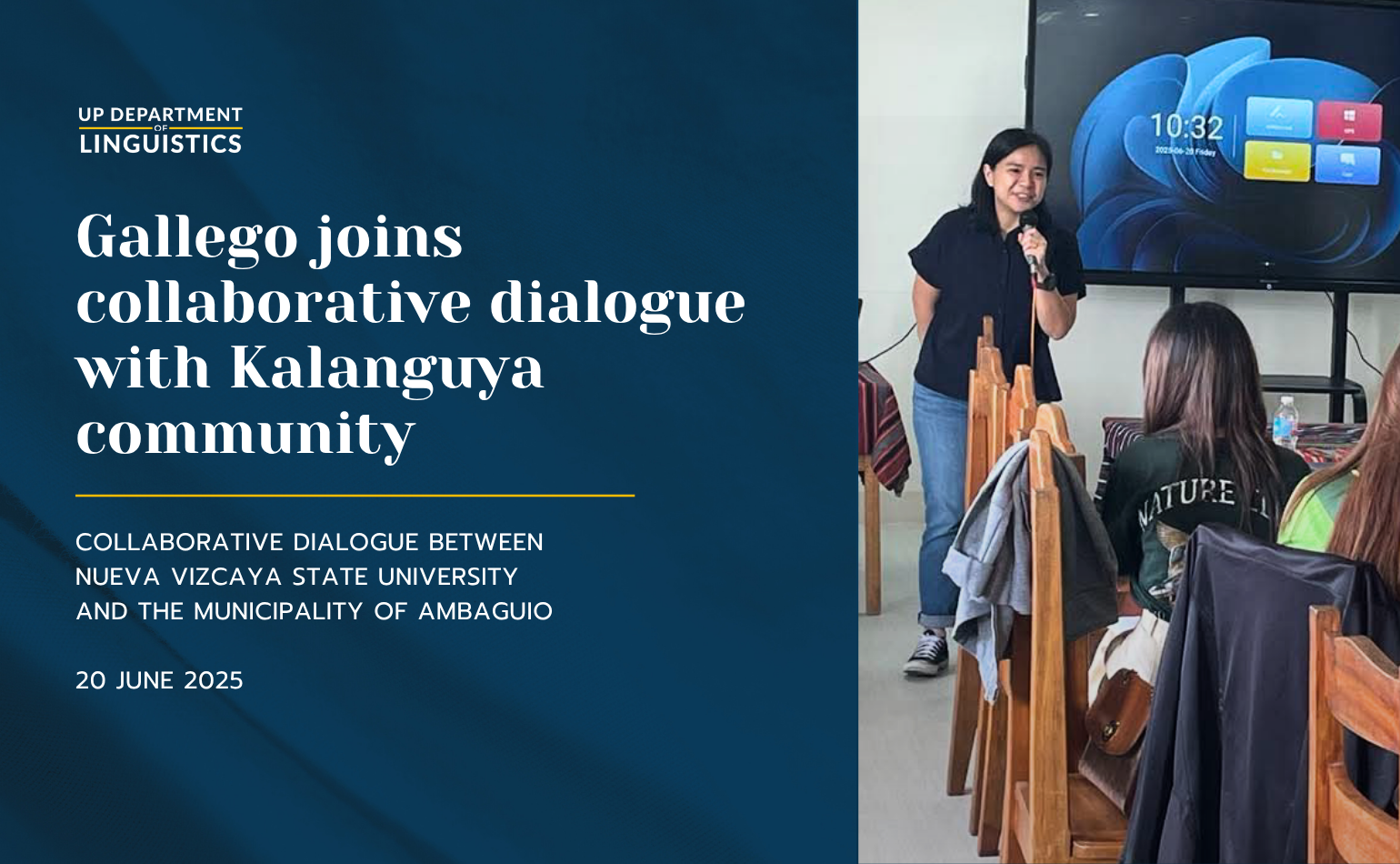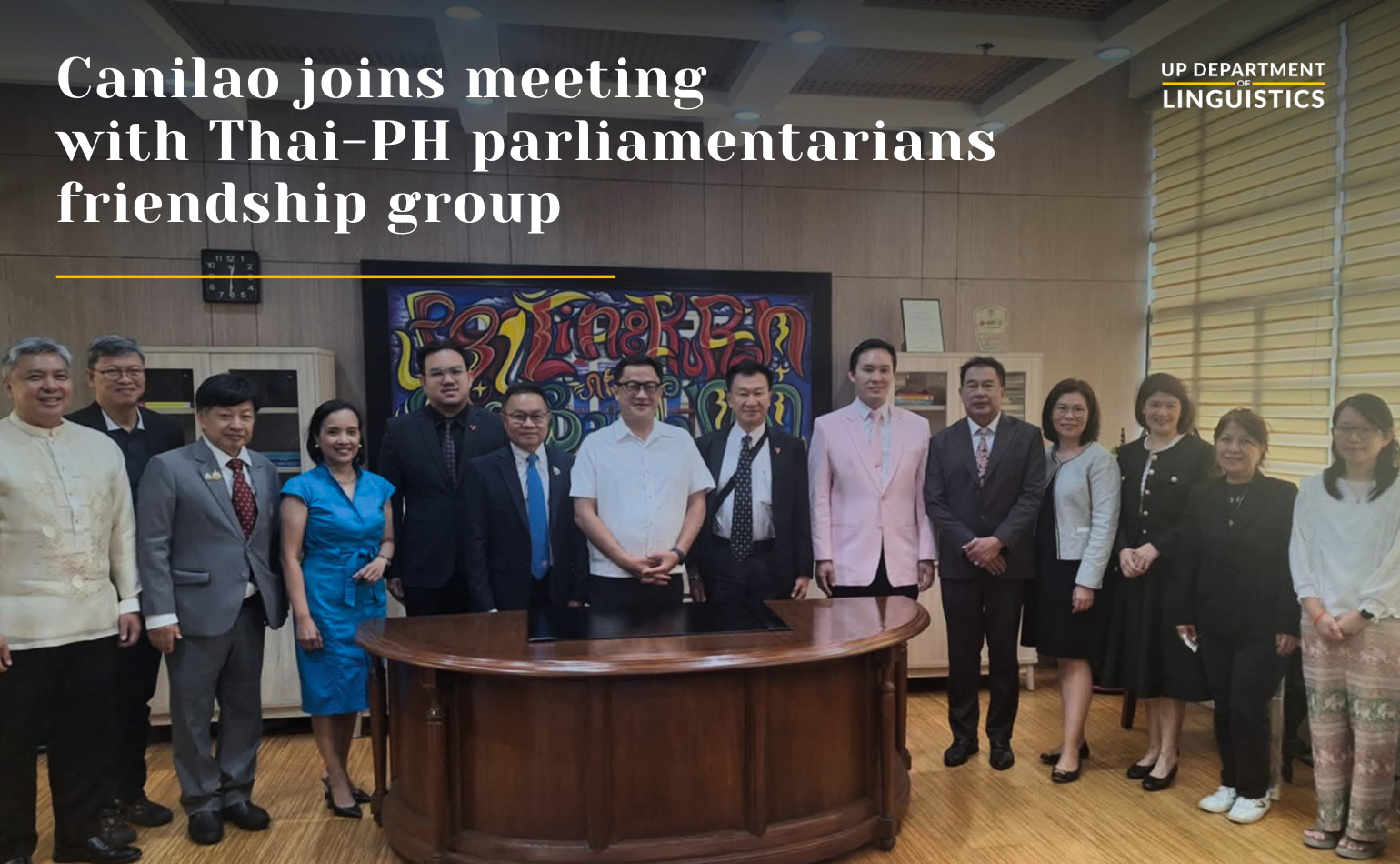
University of Hawai’i at Manoa PhD student and one of the Department’s BA & MA Ling alumni, Louward Allen Zubiri, presented the Bikol Multilingual Corpus (BMC) at his brown bag presentation, which was done fully in-person last July 20, 2023 at Palma Hall 207. The Linguistics Brown Bag Sessions are meant to provide opportunities to visiting researchers, students, and faculty members to present their working papers, and it also aims to provide an informal space where ideas and perspectives on different language-related issues can be discussed.
The linguist’s role
Zubiri opened his talk by sharing the unique profile of Hawai’i. Cultural diversity is widely observable in Hawai’i and it has also been the golden standard of language revitalization. Zubiri shared that his experience studying in Hawai’i and observing the indigenous language revitalization work there emphasized how important it is for a researcher documenting a language to greatly consider the speakers of that language and what they want for themselves. This also extends to concerns outside linguistics as we also consider the human rights and dignity of the people that collaborate with in documenting and revitalizing a language.
Among the issues that indigenous peoples often contend with, as Zubiri pointed out, is their right to their ancestral land. The linguist, now, can be one of two things: an ally or a colonialist. An ally works with the community in figuring out and getting what they need. A colonialist, meanwhile, “settles” in the location and collects only the needed data, without giving back to the community. Associate Professor Tuting Hernandez expounds on this during the open forum by saying that the process of collecting data, archiving and carefully labelling it, only to be never touched again is akin to traditional museum practices that are products of colonialism, where items that are often seen as strange and unusual oddities, largely due to their foreign nature from the perspective of colonizers, are taken and displayed without consent.
Decolonizing Philippine linguistics
In discussing how we might decolonize Philippine linguistics, Zubiri circled back to Hawai’i where multilingual spaces are overt. The Office of Language Access provides citizens access to materials on the languages spoken in the archipelago, which include Tagalog and Ilokano due to the sizable Filipino community in the state of Hawaii. There is also the Filipino Curriculum Project, a student-led educational advocacy in Hawai’i, has designed a curriculum that that reflects Filipino history, identities, and culture, which they aim to be offered in public and private schools in Hawaii, so that Filipinos can learn and connect to their heritage and Filipino youths can feel empowered through this representation of their culture and experiences.
Meanwhile, in the Philippines, attempts to embrace multilingualism are not getting institutional support. The Mother Tongue-Based Multilingual Education (MTB-MLE) program has been recently suspended by Congress, when the Philippines was once on the forefront of multilingual education the world.
Zubiri observed, that based on these, the Philippines seem to continue to be more focused on the acquisition of English, while in Hawai’i, projects that aim to provide space and representation for Filipinos are thriving. The process of decolonization, according to Zubiri, requires the embrace of multilingualism and multiculturalism, rather than perpetuating “Anglocentric ideologies, hypervaluation of non-Filipino scholarship, and the erasure of marginalized voices.” “Decolonization,” he explained, “means that […] there is representation, our voices are heard and we take the lead in studying our languages.”
The Bikol Multilingual Corpus
The BMC project is a longitudinal collection of naturalistic audio recordings of communicative interactions within adult-child dyads. Child participants in the project are within the age range of one to six years old. While the project is focused on getting data on Bikol as a macrolanguage, utterances made by participants also include Tagalog and English thus the multilingual nature of the child-directed interactions recorded in the corpus.
In choosing the participants, Zubiri said that there were three inclusion criteria: first is that the parent must self-ascribe to be a speaker of one of the varieties of the Bikol macrolanguage; second is that the child exhibits typical language development; and third is that conditions within the family allows for early bilingualism or multilingualism. Zubiri also pointed out that they allowed translanguaging in the data collection because “it is the reality of multilingualism’ in our multilingual nation. Thus far, thirteen families from key Bikol communities have been involved for varying durations of time in the project.
The BMC is so far the largest corpus of child-directed and child speech in any Philippine language, with around 130 hours of recordings. By the end of the year, the goal is to make it around 200 hours. It will be made available for open access in the Child Language Data Exchange System (CHILDES) data repository.
BMC and decolonization
Transcribers, translators, field guides and research assistants for the BMC project are from the various Bikol communities, with transcribers matched with the language data of their speech variety. This is part of making the project insider-led and community-based. Next summer, there are plans to have a Bikol Language Documentation Caravan, in order to engage with the communities more and to provide them with capacity-building training.
Zubiri hopes that the findings in the project could help reframe the Filipino as a multilingual, and that the study reveals (contrary to the beliefs of some people, particularly our national policy makers, who might subscribe to monolingual ideologies from the West) that the capacity to learn all languages (and learn them well) in one’s heritage and environment is there as long as there is a chance to do so. This is a natural process that happens all the time in a multilingual society such as ours.
Finally, to ending his presentation, Zubiri again emphasized the agency of the linguist by saying, “Talking about decolonizing is fine, but we need to act. […] You are given things that you can do. You should do it well, and you should do it now.”
Published by John Michael De Pano



